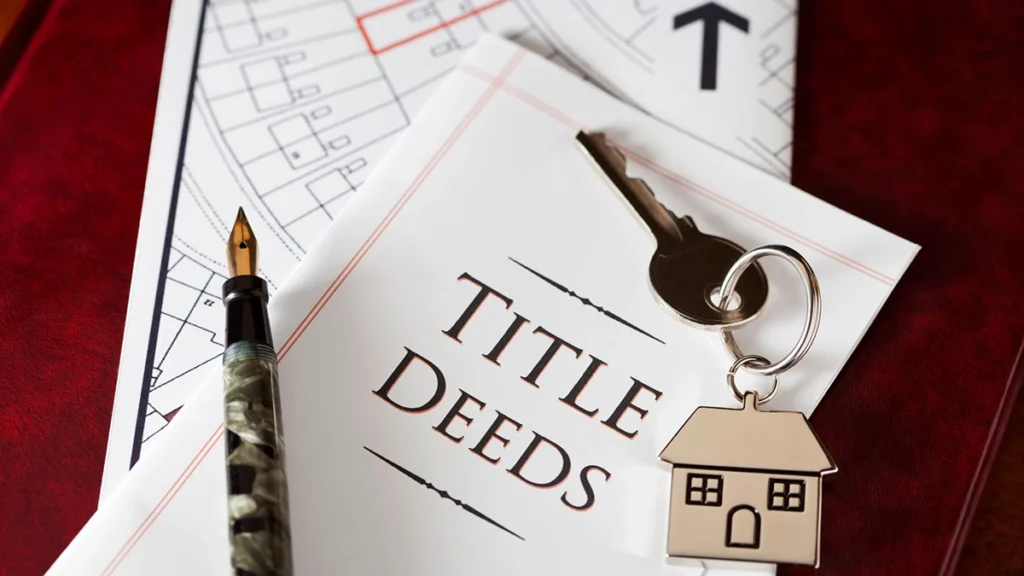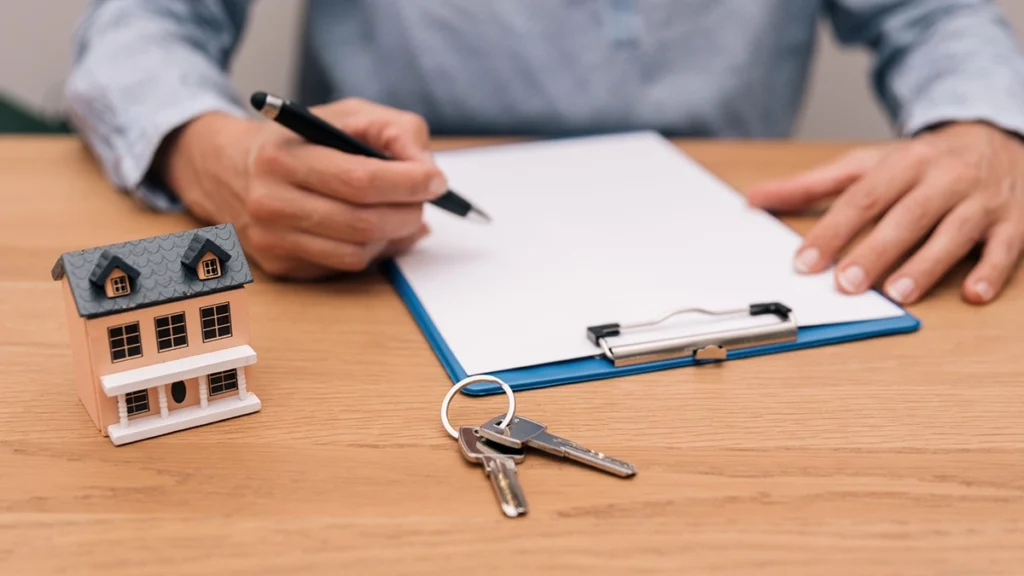Recording a deed may feel like one final signature in a long list of closing tasks, but in reality, it is one of the most powerful steps in protecting what you own.
Whether you are preparing a Lady Bird Deed, a quitclaim deed, or another type of property transfer, accuracy is everything. Once a deed is recorded, it becomes part of the public record and shapes the future of your home’s ownership.
Too many homeowners overlook the fine print, assuming the county clerk will catch any errors. In truth, small mistakes, like a missing signature, an incomplete legal description, or unclear beneficiary language, can ripple forward for years. They can block sales, delay refinancing, or even send families into costly disputes.
By knowing what to double-check before recording, you can prevent those problems and make sure your property reflects your true intentions.
Why Accuracy Matters in Deed Recording
A deed is more than a document; it is the legal foundation of ownership. Every time the property changes hands, the recorded deed is what lenders, title companies, and courts rely on. If the deed contains errors, those errors follow the property until corrected, often through court filings or title claims.
For example, a misspelled name or missing initial might seem harmless, but it can raise questions about whether the right person owns the property. In worse cases, the wrong parcel may be transferred altogether if the legal description is incomplete.
When a Lady Bird Deed is involved, precision becomes even more important because it determines who inherits the home after the owner passes away. Unlike a will, a recorded Lady Bird Deed takes legal priority, so any mistake in the recorded document can directly affect your family’s future.
Understanding the Role of a Recorded Deed
Recording a deed serves two main purposes. First, it provides public notice that ownership has changed or been structured in a certain way. Second, it protects your rights by establishing legal priority. If two deeds are ever filed for the same property, the properly recorded one usually takes precedence.
However, recording does not mean verification. The clerk’s office ensures the deed meets basic formatting requirements, but it does not check for legal accuracy. That responsibility rests on the person submitting the document. This is why double-checking every detail before recording is not just good practice, it is essential protection.
Key Legal Terms to Know
Before reviewing your deed, it helps to understand a few terms you will likely encounter:
- Probate: The legal process where a court validates a will and distributes assets from an estate.
- Life Estate: A type of ownership allowing someone to use and live in the property for life before it passes to another person.
- Lady Bird Deed: A special type of deed recognized in Florida, Texas, Michigan, West Virginia, Vermont, and North Carolina. It allows the homeowner to keep full control during life while naming who inherits it automatically after death.
- Remainder Beneficiary: The person who inherits ownership once the life estate holder passes away.
Details to Review Before Recording
Each state has its own rules, but some mistakes are universal. Review these details carefully to ensure your document is clear, complete, and ready for filing.
Names and Spelling
Every name on the deed must be correct and consistent. Check the spelling, middle initials, and suffixes like Jr. or Sr. The grantor (the person transferring ownership) and the grantee (the person receiving ownership) must match their identification and any previous deeds exactly. A single letter out of place can create title issues that take time and money to fix later.
Legal Property Description
The legal description is the backbone of your deed. It defines the exact piece of property being conveyed and should match what appears on the previous recorded deed or title policy. Include the lot number, block, subdivision, and plat book reference if applicable. Street addresses can change, but the legal description remains constant. If the description is incomplete or copied incorrectly, the deed could refer to the wrong property or be rejected entirely.
Homestead and Marital Rights
In homestead states like Florida, spousal rights are built into the law. Even if only one spouse is listed on the title, both may need to sign when recording a new deed. This rule protects surviving spouses from losing their homes unexpectedly. Failing to include a spouse’s signature or consent could cause future legal challenges or delays when selling or transferring the property.
Execution and Notarization
Deeds must be signed properly and witnessed according to state law. Most states require notarization, and some also require two witnesses. If the acknowledgment is incorrect or missing, the deed can be considered invalid. This is a common mistake in do-it-yourself filings, especially when documents are signed electronically or mailed without proper oversight.
Beneficiary Designation
When naming remainder beneficiaries in a Lady Bird Deed, clarity matters. Avoid general terms like “to my children” or “to my family.” If your family structure changes, those phrases can create confusion or disputes. List each beneficiary by full legal name and specify their relationship to the grantor if needed. This ensures the property passes exactly as intended.
Reserved Rights
The defining feature of a Lady Bird Deed is the power it gives the grantor to retain full control during their lifetime. This includes the right to sell, lease, refinance, or even revoke the deed. These reserved rights must be written clearly into the document. If they are left out or worded incorrectly, the homeowner may unintentionally create a standard life estate with far fewer rights and flexibility.
How County Clerks Handle Recordings
County clerks act as custodians of public records, not legal reviewers. Their main role is to accept and file documents that meet formatting and fee requirements. They do not check whether a deed is accurate or legally valid. A clerk will record a deed even if names are misspelled, signatures are missing, or legal descriptions are incomplete.
That is why responsibility rests on the homeowner or preparer to ensure the document is correct before submission. Once recorded, the deed becomes public record, and fixing it later requires additional filings or legal action. Taking a few extra minutes now can prevent costly corrections in the future.
The Impact on Wills and Probate
A deed is stronger than a will when it comes to real estate. If a Lady Bird Deed is recorded, its beneficiary designation overrides any conflicting instructions in a will. This means that when the grantor passes away, the property transfers directly to the named beneficiary without going through probate.
However, if the deed contains mistakes or fails to meet legal standards, that seamless transfer may not happen. In such cases, the property could fall back into the probate process, defeating the purpose of the deed. Ensuring accuracy before recording is what makes this tool truly effective.
Aging and Future Planning
Many older homeowners choose Lady Bird Deeds because they balance independence and protection. Imagine a homeowner in her seventies who wants to leave her home to her daughter but also keep the option to refinance if unexpected medical costs arise. By clearly reserving her rights in the deed, she keeps control while ensuring her daughter will inherit the home directly after her passing.
This type of thoughtful planning prevents future stress and keeps family relationships intact. A single, well-drafted deed can protect years of hard work and turn an emotional decision into a smooth, predictable process.
Common Mistakes to Avoid
- Leaving out spousal consent where required by law.
- Using vague or unclear beneficiary language.
- Failing to include the full legal property description.
- Missing witness or notary requirements.
- Assuming the county clerk verifies legal accuracy.
- Not reviewing the deed against prior ownership records.
Lady Bird Deeds vs. Other Deeds
Different deeds serve different purposes. A quitclaim deed transfers whatever interest the grantor has but provides no guarantee of clear title. A warranty deed transfers ownership with full assurance of title but usually requires an immediate transfer. A Lady Bird Deed provides the best of both worlds for certain homeowners: complete control during life and automatic transfer at death without probate.
For those living in states where it is recognized, this flexibility can simplify estate planning and provide peace of mind for both the owner and their heirs.
When Professional Guidance Helps
Even simple deeds deserve careful attention. A professional preparer or attorney can review your document for compliance with state laws, confirm that the legal description is accurate, and ensure that signatures and notary sections meet local requirements. The cost is minimal compared to the potential complications of recording a flawed deed.
Families who take this extra step often find peace of mind knowing their intentions are legally sound and fully protected.
Key Takeaways
- Recording a deed correctly ensures that your property ownership is protected and your wishes are honored.
- Double-check every detail, names, legal descriptions, and signatures, before submitting it for recording.
- A Lady Bird Deed overrides any will for the property it covers once recorded.
- Only six states recognize Lady Bird Deeds: Florida, Texas, Michigan, West Virginia, Vermont, and North Carolina.
- Clerks do not review legal accuracy, so preparation is your responsibility.
- Professional review can prevent costly errors and keep your family’s transfer process simple and stress-free.
Recording a deed is more than an administrative task, it is an act of protection. When done correctly, it ensures that your home, your legacy, and your loved ones are secure for years to come.



